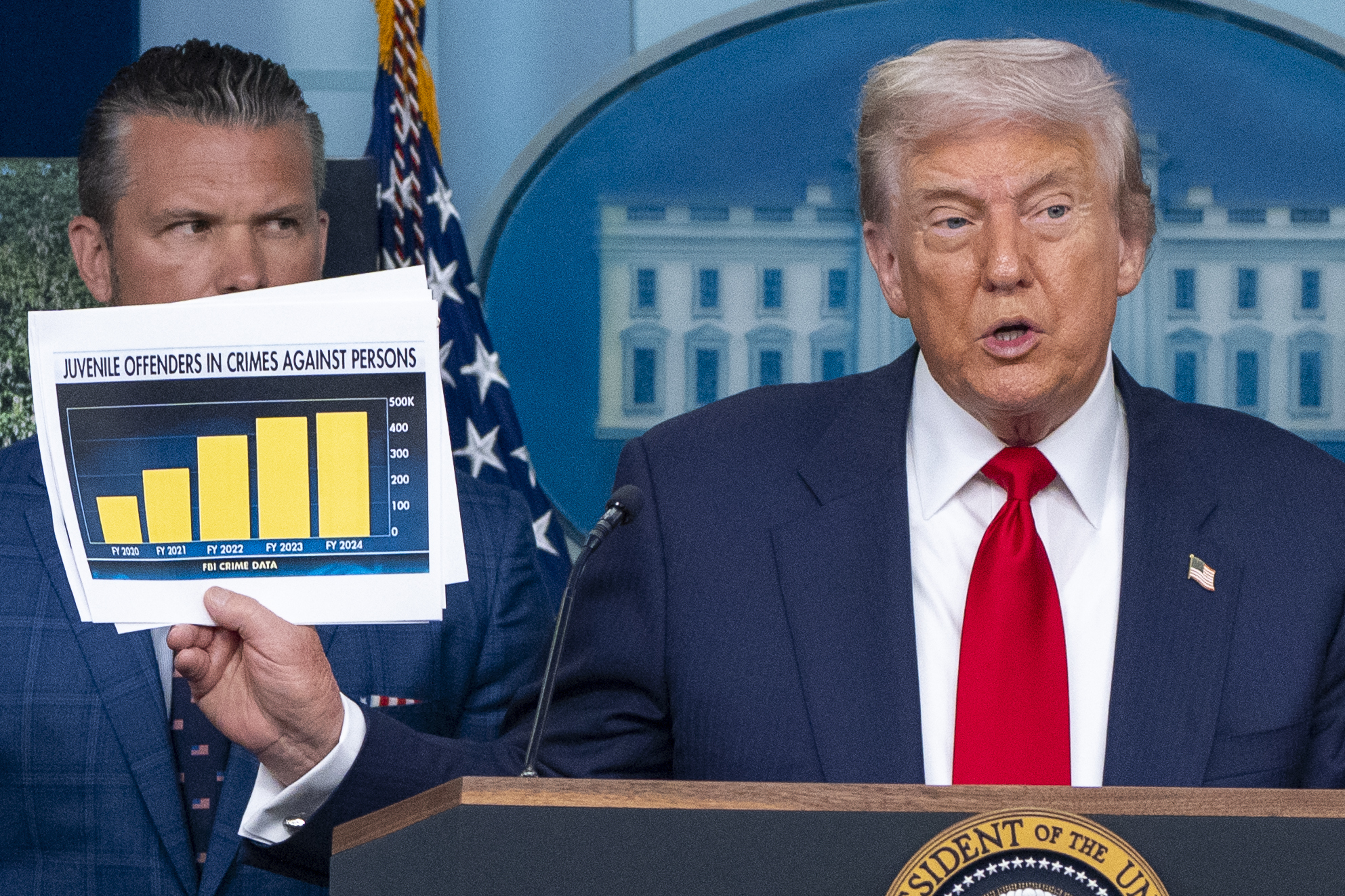Seated in the White House’s Roosevelt Room between two empty chairs, one designated for House Minority Leader Nancy Pelosi, one designated for Senate Minority Leader Chuck Schumer, President Donald Trump promised on Tuesday to “absolutely blame the Democrats” in the event of a government shutdown next month.
This threat, like his repeated warnings that Democrats will “own” the consequences of his efforts to sabotage the Affordable Care Act, resembles nothing so much as the dismembered black knight writhing on the ground and raving about his invincibility.
For a time at least, Trump seemed to genuinely believe that he could inflict various forms of punishment on the public as inducements to draw Democrats into negotiations on his terms. Yet despite all of his bluster this week, it seems to have finally dawned on him that the president—and particularly the president of a unified government—can not trick the public into thinking the out-of-power party is responsible for his willful misgovernance.
Trump wants people to believe that a government shutdown early next month is something Democrats should fear politically, but the most telling words out of the White House Tuesday, in an otherwise contemptible statement from press secretary Sarah Huckabee Sanders, signaled an awareness of two things: First, that Republicans understand the weakness of their position; and second, that they know Trump has cut their legs out from under them. The question facing Democrats now isn’t whether they can make demands, it’s how much Republicans will part with to make the damage they’re doing to themselves go away.
Tuesday’s strange theatrics fell against the backdrop of the December 8 deadline to fund the federal government. Government shutdown politics are delicate, but not terribly mysterious. Typically they arise in times of divided government, and in general have been defined by Republicans issuing extraordinary ransom demands of Democratic presidents in exchange for their votes to keep the government running. They have never arisen in than era of unified government, but the Republican Party’s legislative incompetence has thrown open the possibility that they won’t be able to keep their own government open.
The fact that Republicans need Democratic votes to fund the government gives Democrats unusual, but not unlimited, leverage. Democrats could in theory demand Medicare for all financed by a surtax on the wealthy as a price for their votes, but the public would rightly view that as hostage-taking rather than dealmaking and punish them for it. For this reason, it was in Trump’s acute interest to loop Democratic congressional leaders into a joint negotiation with him and the GOP, so that the public might allocate blame evenly in the event of failure, and so Trump himself could shape the narrative of those events. By the same token, it was in Democrats’ interest not to let Trump—who is a pathological liar—co-opt them into a negotiation at a low point of their power, while avoiding the impression that they are unduly intransigent.
With that calculation in mind, Trump did this nonsense…
Meeting with “Chuck and Nancy” today about keeping government open and working. Problem is they want illegal immigrants flooding into our Country unchecked, are weak on Crime and want to substantially RAISE Taxes. I don’t see a deal!
— Donald J. Trump (@realDonaldTrump) November 28, 2017
…and in so doing, gave Democrats unexpected cover to cancel the meeting. Trump’s scummy inclination to lie about and belittle his opponents—in this instance, opponents whose help he needs—had the effect of surrendering all of his leverage to Democrats.
This is not simply my read of the politics, but the White House’s as well. Sanders’ statement in response to Schumer and Pelosi didn’t say good riddance, but rather “The president’s invitation to the Democrat [sic] leaders still stands.”
By withdrawing from negotiations Trump himself described as futile, Pelosi and Schumer have placed the onus on Republicans to either craft spending legislation that can pass on its own, or to approach Democrats, hat in hand, prepared to offer concessions to avoid a shutdown. This posture robs Trump of his power to make false promises, or to lie about their negotiations. It frees Democrats to set terms under which they’ll help Republicans fund the government, and negotiate outward from there.
From a position of strength, they can fairly insist that Republicans adopt measures to essentially unfuck everything they and Trump have fucked up together—that stabilize the Affordable Care Act exchanges, protect DREAMers, fund disaster relief, and reauthorize the Children’s Health Insurance Program. They can also insist on parity in spending between defense and non-defense accounts. Republican leaders may believe that artificially high insurance premiums, deported DREAMers, inadequate hurricane responses, and making it harder for sick children to get medicine are their highest priorities, but they’d be hard pressed to ask Democrats to fund a government that enshrines those priorities.
That’s not to say Republicans would be out of moves. They could counter Democrats’ demands with asks of their own, or they could fall back on the lowest common denominator proposition to fund the government briefly, at current levels, with no concessions for either party. But they’ll eventually have to deal on all of these items, and the man who wrote a book called The Art of the Deal just let his counterparty set the terms.




